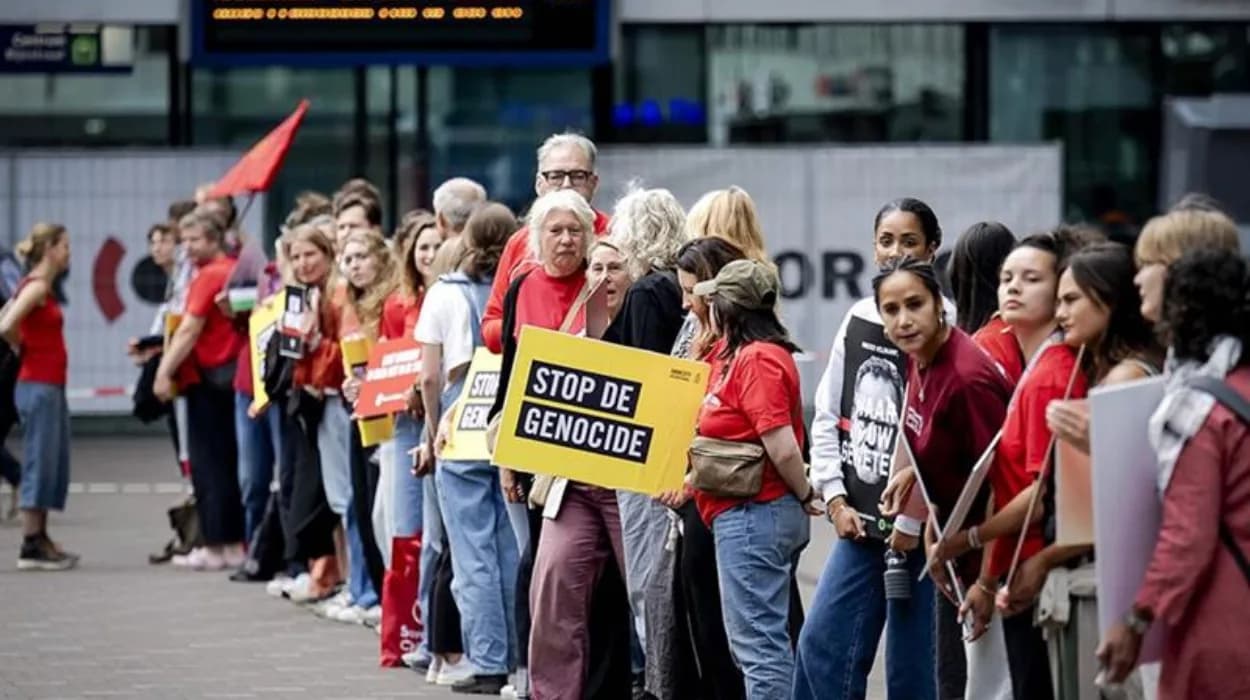European and Arab nations have strongly condemned Israel's
recent plans to occupy Gaza, criticising the move as illegal and a violation of
international law, while the United States remains firmly allied with Israel.
This diplomatic split underscores growing tensions and conflicts over the Gaza
situation.
Condemnation from Europe and the Arab World
As reported by correspondents from various international
media, key European countries and Arab powers have united in condemning
Israel’s proposed occupation plan for Gaza. The plan, which entails extended
control over Gaza following recent military actions, has been described by
European officials as a "grave violation of international law".
Arab leaders have expressed similar outrage, warning that the move could
exacerbate the humanitarian crisis and destabilise the Middle East further.
A spokesperson for the European Union stated that the occupation undermines decades of diplomatic efforts to secure peace and violates the sovereignty of the Palestinian people. European diplomats emphasised that
"occupation only fuels resentment and violence, not peace."
From the Arab League, Secretary-General Ahmed Aboul Gheit condemned the measures as
"a blatant attempt to annex Gaza under the guise of security operations,"
highlighting the severe impact on civilian life,
including severe shortages of food, medicine, and access to humanitarian aid.
The U.S. Position: Support for Israel
In contrast, U.S. officials have expressed steadfast support for Israel’s actions in Gaza. As reported by a senior U.S. State Department official, the American administration views Israel's plans as
"necessary for the security of its citizens in the face of ongoing threats."
The
U.S. reiterated its rejection of international calls for Israel to withdraw,
framing the occupation as part of legitimate defensive measures.
This stance has drawn sharp criticism from European and Arab
diplomats, who accuse the U.S. of disregarding international law and the rightsof Palestinians. The divide between Washington and its traditional allies on
this issue has highlighted the growing polarity over Middle East policy.
Context of the Gaza Occupation Plan
The Israeli government announced its intention to occupy Gaza in the wake of renewed conflict with Hamas militants. Israeli Prime Minister stated that the occupation is designed to
"eliminate terror infrastructure and ensure lasting security for Israeli citizens."
However,
several international observers note that the military control over Gaza could
become permanent, effectively annexing the territory.
Human rights groups, including Amnesty International and
Human Rights Watch, have condemned the plans, warning that the occupation would
lead to further human rights abuses and collective punishment of the Gazan
population. Reports from the Gaza Ministry of Health indicate a rising death
toll from ongoing military operations and severe shortages of medical supplies.
International Legal Perspectives
Legal experts and the United Nations have weighed in,
stating that the occupation violates the Fourth Geneva Convention, which
prohibits the annexation of occupied territories and the forcible displacement
of civilian populations. The UN Secretary-General called on Israel to
immediately cease actions that contravene international law, warning of
increased instability and suffering in Gaza.
European Parliament members echoed these concerns, calling
for economic sanctions against Israel if the occupation continues.
They stressed that diplomatic solutions must be prioritised to avoid further
escalation.
Humanitarian Concerns and Regional Implications
Arab nations, including Egypt, Jordan, and Lebanon,
expressed grave concerns about the humanitarian consequences. Egypt’s Foreign
Ministry described the planned occupation as a "dangerous
escalation" that threatens to ignite broader regional conflict. The
blockade of Gaza has already led to widespread shortages of food and fuel, with
the UN agencies reporting alarming rates of malnutrition and health crises.
Lebanese and Jordanian officials warned that such aggressive
policies would destabilise their own borders, potentially leading to renewed
violence and refugee flows.
Public Reaction and Protests
Internationally, protests have erupted in multiple cities
across Europe and the Arab world, condemning Israel's occupation plans and
calling for urgent international intervention. Activists demand an end to
military operations and the lifting of blockades to allow humanitarian aid into
Gaza. Protests have also spotlighted the perceived imbalance in international
support, particularly Washington's unwavering alliance with Tel Aviv.
Analysis of the Diplomatic Rift
This unfolding crisis reveals a stark fracture in
international alliances. European nations, traditionally allied with the U.S.,
are vocal in their criticism of Israeli policy, reflecting growing discomfort
with the current administration’s Middle East strategy. Arab states are
increasingly assertive in opposing Israeli actions, aligning with European
calls for compliance with international law.
The United States’ position, as confirmed by its diplomatic
spokespeople, is shaped by longstanding strategic and political ties with
Israel, but risks deepening diplomatic isolation on this issue.
The international community faces mounting challenges in navigating the escalating crisis in Gaza. As European and Arab powers vehemently condemn Israel's occupation plan, while America stands firmly with Tel Aviv, the prospect of renewed conflict looms large. With humanitarian conditions worsening and diplomatic impasses deepening, the world watches closely the next steps in this volatile situation.
